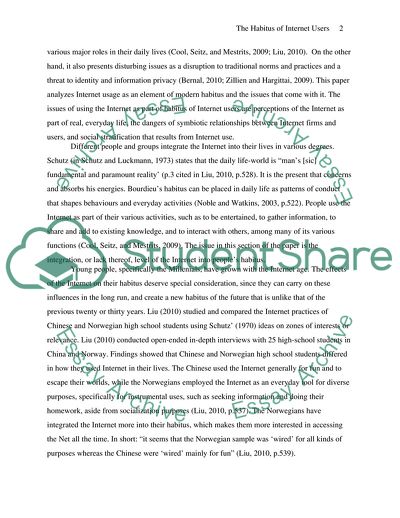Cite this document
(The Habitus of Internet Users Literature review, n.d.)
The Habitus of Internet Users Literature review. https://studentshare.org/sociology/1764924-evaluate-bourdieus-ideas-on-consumption-social-status-and-the-habitus-fashion-food-hobbies-music-etc
The Habitus of Internet Users Literature review. https://studentshare.org/sociology/1764924-evaluate-bourdieus-ideas-on-consumption-social-status-and-the-habitus-fashion-food-hobbies-music-etc
(The Habitus of Internet Users Literature Review)
The Habitus of Internet Users Literature Review. https://studentshare.org/sociology/1764924-evaluate-bourdieus-ideas-on-consumption-social-status-and-the-habitus-fashion-food-hobbies-music-etc.
The Habitus of Internet Users Literature Review. https://studentshare.org/sociology/1764924-evaluate-bourdieus-ideas-on-consumption-social-status-and-the-habitus-fashion-food-hobbies-music-etc.
“The Habitus of Internet Users Literature Review”. https://studentshare.org/sociology/1764924-evaluate-bourdieus-ideas-on-consumption-social-status-and-the-habitus-fashion-food-hobbies-music-etc.


